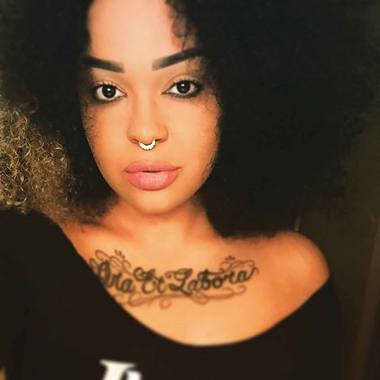Black and Queer

by Arhia Ramsey
Special to The Gayly
The term “intersectionality” originates from Kimberle Crenshaw’s 1989 essay, “Demarginalizing the Intersection of Race and Sex; A Black Feminist Critique of Antidiscrimination Doctrine, Feminist Theory and Antiracist Politics”. Intersectionality is a term that most of us are familiar with; it describes the way multiple oppressions are perpetuated and experienced.
In the wake of our nation’s most recent headlines of police brutality that resulted in the deaths of Alton Sterling and Philando Castile, it’s important to let Black people grieve and speak about their own experiences, but also to recognize that while there is a place where Black and queer experiences intersect, they are incredibly distinct.
Each day, black queerfolk maneuver the world of anti-blackness compounded with hatred that LGBTQIA people also undergo. When anti-blackness rears its ugly head in the gay community, it is terribly confusing and hurtful.
As a black, bisexual, cis-gendered woman, I’ve witnessed this few too many times. It’s exhausting that in a community I love, I must still fight systemic racism. I’ve been told by white, gay cis-men that black people no longer have a thing to be fighting for. I’ve been told to direct my anger elsewhere – to direct my anger towards the injustices experienced by my non-POC queer counterparts. That that is where the real fight is.
This type of thinking is erasure. It simply forgets the multidimensional identities of queer people of color. This erasure is but another manifestation of anti-blackness.
Other times, I have been told by non-POC members of the LGBTQIA community that they “get it”. They tell me they understand the racism I suffer because they are gay. They relate to the racial profiling I’ve become accustomed to because they are trans. That they identify with my Blackness as a result of their queerness.
But, they cannot. My blackness is an expression of self that requires no explanation. My blackness cannot be taken off or hidden. My blackness is the first thing that anyone knows about who I am before I have ever spoken to them. Black queerfolk experience a coalescence of oppression based on their blackness alone and sexuality and gender-identity as well.
So, what can non-POC do?
1. Acknowledge that oppression is not experienced uniformly.
It’s invaluable for non-POC members of the LGBTQIA community to remember that while they too suffer injustice and oppression, their black counterparts are suffering in ways they truly cannot comprehend. Now is not the time to relate, now is the time to listen. Remember that while LGBTQIA and black experiences converge on the axis of oppression, they are not the same.
2. Listen to the black voices around you.
Give your POC friends the opportunity to be heard. Sometimes it’s more important to hear the stories about racism your black peers endure than to tell a narrative of your own oppression in an attempt to sympathize.
3. Allow your black peers to grieve.
We are sad. Oh, we are truly hurting. The black community is, was, and has been grieving for a long time now. We have become all too aware of the targets on our backs; black LGBTQIA people even more so. Surround your black friends with support in however best suits them. Allow them to process their pain in their own time and way.
4. Unpack your own racism.
This is probably the hardest and most important piece of advice I could give to non-POC. There’s no sure-fire way to do this, and it’s going to take time. Be cognizant of the language you use and stereotypes you hold true. Confront privilege and anti-blackness at full force. Educate, inform, and empower yourself with the knowledge of how non-POC benefit from white supremacy.
5. Speak up when you observe anti-blackness in the LGBTQIA community.
At Oklahoma City’s Black Lives Matter march and rally, I saw a sign that read “White Silence = Violence”, and it really is as succinct as that. Not addressing racism, big or small, makes you complicit to it. Remaining silent gives that individual permission to continue using rhetoric or behaving in a way that is malignant to black lives.
I have always said that before I am anything else, I am black. But, I am also a bisexual woman navigating my way through a world that hates me for both of these things. As important as allies are to the LGBTQIA movement, so are non-POC LGBTQIA allies to black queer folk. Support us. Uplift us. Love us. We really need it right now.
Arhia Ramsey was born and raised in Oklahoma and currently resides in OKC with her four-year-old son and partner. She is an LPN and hopes to work as a sexual assault nurse examiner after completing her bachelor's degree. She is loud and proud about her pro-Blackness and is a self-proclaimed eyebrow enthusiast.
The Gayly - August 11, 2016 @ 7:10 a.m.





